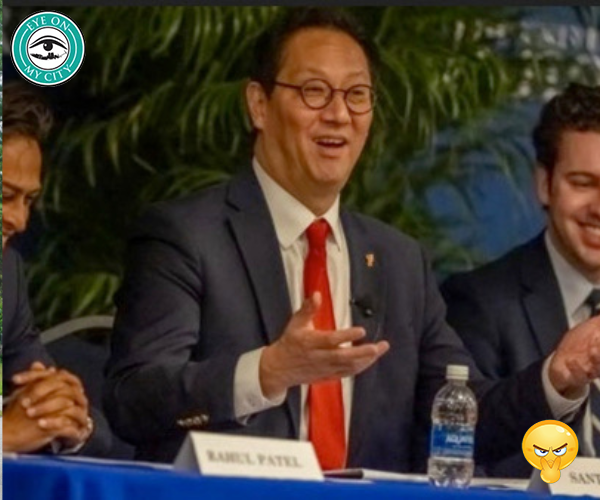
Putting stuff into the yellow-topped curbside recycling bins may make homeowners feel virtuous, but it probably isn’t saving the taxpayers any money.
The popular notion is that the garbage is sold and the operation breaks even or makes a profit.
Not quite.
The city does get $1.5 million in revenue, but it spends $2.2 million, not even counting the cost of collection. (It also avoids using space in the landfill.)
What is more, the prospects are dim for improving the situation.
Waste Management, which is heavily involved in trying to make recycling work, has been closing recycling centers and its CEO has noted: “To be sustainable overtime, recycling operations must make economic sense.”
The reasons that recycling is losing ground are that processing costs are up and commodity prices are down.
Contamination is a major problem and is the main reason much of the material collected after considerable time and expense ends up in a landfill, by a circuitous route.
Homeowners can help by recycling all empty bottles, cans and paper, and keeping food, liquids and loose plastic bags out of the recycling bin.
Turning garbage into gold isn’t magic.
Duval County collected nearly 3 million tons of solid waste last year. Only five other counties had more.
One interesting note: Among the largest counties, Duval collects the most waste per capita – an eye-opening 17.3 pounds per person per day. That number has been growing since 2013.
Duval had a recycling rate of 58 percent, which was better than the top five but more waste went into landfill than four of the top five, because Duval burns almost no solid waste. Hillsborough recycles less but burns 27 percent of the waste it collects and Palm Beach burns 36 percent.
At one time, Duval burned much of its waste. During the 1980s there was a proposal to build an incinerator that would produce energy, but it failed to pass the City Council.
Florida, incidentally, has an ambitious goal of reaching 75 percent recycling by 2020, but isn’t even meeting the current 60 percent goal.
One reason is that the commercial sector generates two-thirds of the waste. Household recycling alone simply won’t do the job.
Since recycling, burying and burning all entail a cost, the question is whether Jacksonville is using the most cost/efficient mix of waste disposal.
It affects everyone. Currently, using recycling is optional. It could become mandatory and even more burdensome on the homeowner if he is required to separate materials himself.
We wanted to ask City Hall about this and other matters pertaining to solid waste disposal but were unable to break through the Curry Wall, which prevents access to public information.
As the recent Task Force on Open Government noted, the Curry administration seals off access to public officials in order to “control the message,” which is one way of saying “spin it in the mayor’s favor.”
We couldn’t find the information on the city’s Web site (also criticized by the task force) so we went to the people who are supposed to provide the public with information.
Mayor Lenny Curry’s highly paid public information officer gave us several snarky replies to our requests, then basically told us to go get the information ourselves from the state government. That is where we obtained the figures about waste collection and disposal.
It doesn’t tell us anything about whether the city’s costly recycling program is efficient or worthwhile, but Eye on Jacksonville will continue to seek ways to climb Curry’s Wall and obtain information.
[author] [author_image timthumb=’on’]https://eyeonjacksonville.com/wp-content/uploads/2018/04/Lloyd-Brown.jpg[/author_image] [author_info]Lloyd was born in Jacksonville. Graduated from the University of North Florida. He spent nearly 50 years of his life in the newspaper business …beginning as a copy boy and retiring as editorial page editor for Florida Times Union. He has also been published in a number of national newspapers and magazines, as well as Internet sites. Married with children. Military Vet. Retired. Man of few words but the words are researched well, deeply considered and thoughtfully written.[/author_info] [/author]






